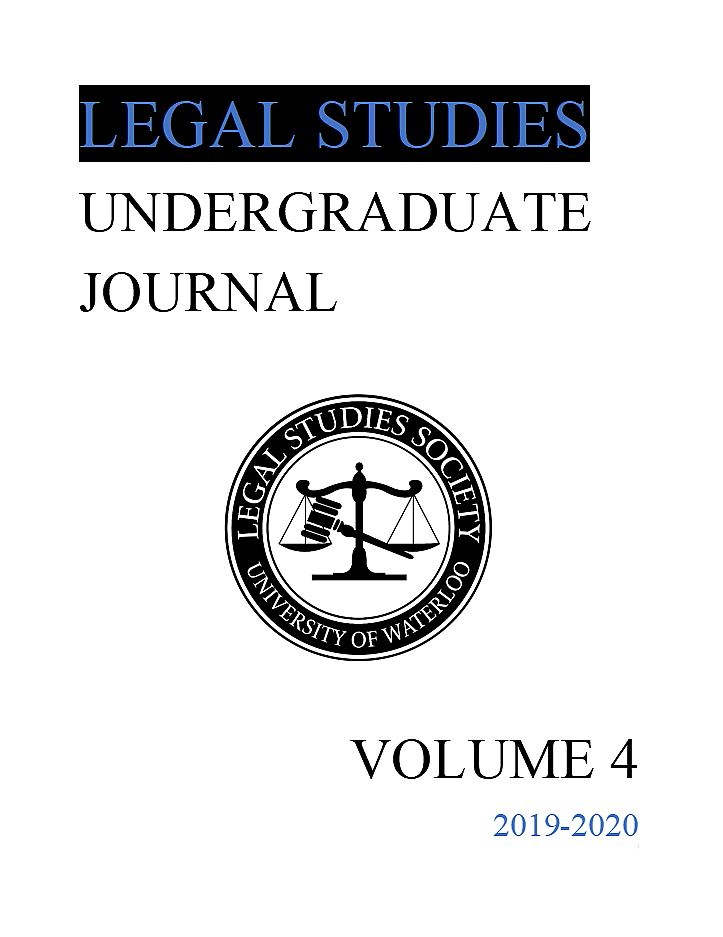Considering Domestic Violence in the Context of Refugee Claimants in Canada
Abstract
In Liberalism and the Limits of Inclusion: Race and Immigration Law in the Americas, Cook-Martin, and FitzGerald (2010) acknowledge and refute the dominant perspective that the adoption of international human rights-based immigration law has eradicated exclusionary immigration policies in liberal states such as Canada (9). In fact, Cook-Martin and FitzGerald (2010) establish that exclusionary immigration policies are proposed and implemented more in liberal states than in illiberal states (7). In considering this discussion of immigration policies in liberal states, it can be asserted that despite the purported attempts of liberal states to eradicate exclusion in immigration policies, liberal states continue to participate in forms of positive discrimination which occur during the processes of evaluating the claims of individuals who are pursuing refugee status (Cook-Martin & FitzGerald 2010, 14). In the process of evaluating refugee claims, Sherene Razack (1998) further advances this discussion of liberal immigration policies through arguing that adjudicators on immigration boards categorize individuals seeking asylum on the grounds of domestic violence in diametric positions (88-89). Razack (1998) thus purports that adjudicators categorize claimants as either disreputable claimants or those in essential need of emancipation from the violence endured on valid grounds of persecution (88-89). Drawing on the perspectives of Cook-Martin and FitzGerald (2010) and Razack (1998), this article will demonstrate that immigration rights in liberal states are not granted equally .
Published
Issue
Section
License
All authors have referenced and footnoted all ideas, words, and/or other intellectual property from other sources used in the completion of the essays. All authors have included a proper reference list, which includes acknowledgement of all sources used to complete the paper. The essays within this journal shall not be reproduced in any form without permission of the publisher or the author, and shall also not be resubmitted in any way for use in any academic setting.Â

